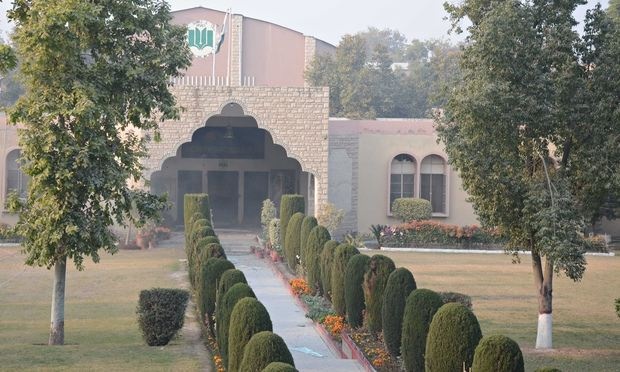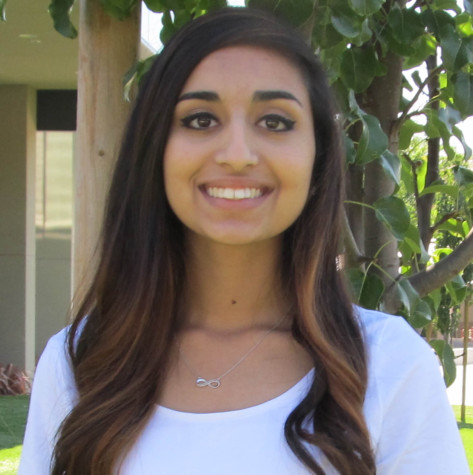Islamabad, Pakistan VS Danville, California

The Peshawar School attack took place on December 16, 2014 when seven gunmen entered the Army Public School, killing 145 people. This was one of the many terrorist attacks that the country of Pakistan is facing. Due to this, school safety has been heavily installed and serious measures are being taken to protect the students of Pakistan.
May 15, 2015
From just the start of 2015, there has been 855 fatalities from 9 attacks due to terrorist violence in Pakistan. Just last year there was a total of 5,496 fatalities, and since 2003 there has been a shocking number of 56,867 fatalities altogether.
Terrorist incidents are becoming frequent in the country of Pakistan, with bomb blasts and gun shootings happening in supermarkets, schools, and airports.
These attacks started occurring regularly after 2001, and yearly fatalities from terrorist attacks alone have been rising ever since.
On December 16, 2014, seven gunmen entered the Army Public School in Peshawar through a back entrance from a nearby cemetery; these gunmen were affiliated with a Taliban group and disguised themselves as paramilitary force members while they attacked the school.
145 people were killed – 132 of them being school children between the ages of 8 and 18. Students who had hopes and dreams of their futures, some even on their way to college. Children, with families and friends, lost their lives from this Taliban incident which would later be known as the Peshawar Attack.
In April of 2014, my family and I planned a short trip to the capital city of Islamabad to visit my relatives. It had been seven years since we had last gone for my uncle’s wedding, and there’s a reason why we hadn’t been back in so long.

Like many other countries in the Middle East, Pakistan is currently very unsafe. Residents are constantly living in danger with bombings and attacks happening so frequently, it’s now common.
I was in Pakistan for roughly two weeks. During those two weeks, two terrorist incidents took place near me.
The first was on April 8 at a train station in the province of Baluchistan where 13 people were killed by a bomb blast.
The second one happened the next day in Islamabad where I had been staying with family. Thirty minutes after we had passed a local vegetable market, a bomb went off, killing 20 and injuring 70 people.
The influx of terrorist attacks happening in Pakistan originated from the attacks of September 11, 2001 in the US. During that time, prominent terrorist groups such as Al-Qaeda and Taliban militants fled from Afghanistan into Pakistan.
For us residing in the Bay Area, we are secure and surrounded by safety within our communities.
We don’t fear stepping outside into our neighborhood, going to a local market, or attending school, but the daily lives of Pakistanis and other Middle Easterners are different.
Not only are people more conscious and aware when they go out, their overall lifestyle has taken a change knowing the circumstances of their country.
With the increase of terrorism in Pakistan and the Peshawar attack, school experience for millions of students has changed drastically. There are several public, private, international, and boarding schools in Pakistan that have taken immediate action in protecting their students.
These actions, however, have changed the way these students attend school.
Students who have attended school in Laos, South Korea, Hungary, the United Kingdom, Canada, etc, have moved out to Pakistan and now attend the International School of Islamabad.
Each one of them has had to adjust to a new lifestyle as a student under strict school regulations in Pakistan.
Rumsha Khan previously attended school in San Ramon, California in one of the best school districts in the state. Four years ago, her and her family moved to Pakistan and began adjusting to their new lifestyle.
Like any big move, transitioning into a new lifestyle is something that took time to adapt to.
“When I first moved to school here, I went to a local Pakistani school in which they had a British system,” Khan said. “Academically, it was really difficult for me to adjust because it was all about memorization opposed to understanding concepts.”
“The class rankings were always on everyone’s minds, I mean rather than a learning experience it was really just a competition and a structured system for getting information into your mind quicker,” she said.
In terms of security, Rumsha feels completely safe where she’s living in Islamabad, and it almost reminds her of her hometown. People in Pakistan are usually alerted in some way of news of any local threats.
“Sometimes in the news or by people that we know, we are alerted about local bomb threats, attacks, etc., so then we steer clear of those areas for a couple weeks,” Rumsha said. “Usually when these threats happen, and say that I’m going to a mall that day, they will cut off all phone signals in the mall so nobody can activate a bomb and the general security installed there is very high.”
This type of heavy duty security hasn’t only been installed in malls however, but is transitioning its way into schools.
There are a number of foreign students that attend the International School of Islamabad and they have had to adapt to security measures and precautions much different than in their previous homes.
William Sung previously attended school in both Laos and South Korea.
When William went to school in these other countries, he had no real concern for his safety and security, especially not at school, but that changed when he moved.
“As soon as I came to ISOI, I was surprised and at the same time impressed at the level of security they had,” Sung said. “I was also concerned because security inside normal schools wasn’t that much of a big deal during my life and it made me scared by how much security they had to put together to just get a few hundred people to school.”
Viktoria Muller is also a student there and has attended school in both the United Kingdom and Hungary.
“I believe that ISOI is one of the safest schools in Pakistan, with some of the highest security measures on campus,” Viktoria said. “Our security team has been working continuously on developing the guards’ new attitudes towards new students and visitors.”
“Also, the walls surrounding the school have met all requirements; it reaches the given height and has barbed wire all around,” she said. “We’ve also been practicing different kinds of drills with the entire school so we are prepared for any attacks.”
These security systems have been very beneficial to the students and staff, with no attacks occurring on or near the campus.
“There hasn’t even been one case of security problems or breaches over the past few years,” William Sung said. “Showing my ID on entry and exit, going through a metal detector and three steel doors with isolated rooms has become a part of my school life and every time I go through them I’m reminded that I’m in Pakistan.”
“Our school still occasionally shuts down on special occasions such as bombings or other large scale protests occur,” Sung said. “However even when those events happen, they don’t seem to distract us from performing in school because it’s just a couple of days in a semester and we have Virtual School at home where our class can connect with the teachers via Internet.”
International schools such ISOI do everything in their power to protect the students and make them feel as safe as possible while on campus.
Aside from international schools, private academies have taken similar precautions when approaching the issue of terrorist violence.
Shahnaz Babar is the headmistress of Bloomfield Hall School in Chakwal, Pakistan – one of the most reputable educational institutions in Pakistan.
Due to the rise of terrorist violence, Mrs. Shahnaz Babar has taken extreme measures in regards to how much security should be installed in her school and what kinds of restrictions should be put on the students.
“Over the last few years, we have had to keep security measures on our priority list even more than the academics itself,” Shahnaz said. “Our security measures include 8 feet boundary walls with barbed razor wires from all sides of the school premises and cameras are being installed with 24 hour recording.”
“We’ve hired extra security staff with armed weapons depending on the sizes of the schools and security blocks/ barriers are placed in front of the school,” she said. “More security alarms are being installed and safety evacuation drills are practiced regularly in all schools.”
Private sector schools like Bloomfield Hall had already taken strict safety precautions, however as soon as terrorist violence rates started to increase, both public and government sector schools had to improve their safety.
“We have taken some unavoidable measures such as not being able to hold centralized school events like assemblies, sports days, or field trips and even after school clubs and remedial classes have been affected,” Shahnaz said. “Their confidence level and spirit for coming to school has declined as restricted activities are hampering their progress, however once they are secured inside they are able to enjoy their school experience.”
Having so many restrictions as to what the children can and can’t do has affected their school experience negatively.
“Extended closure of schools naturally has a negative impact on their young minds; school is a place where students are pleased and secured and are able to learn different things will doing practical activities – such as educational trips,” Shahnaz said. “Morning assemblies were made to show students discipline but now they are scared since assemblies are in an open area.”
Not only are students having to go through isolation and strict new regulations, they have begun learning self – defense exercises.
These students have been dealing with an extremely difficult time, however they know the critical situation of their country and are still determined to excel in school and appreciate their culture despite these circumstances.
“I laugh whenever I think about the typical mindset that people have for us Pakistanis, that everything in Pakistan is bad and dangerous,” Rumsha Khan said. “We are all so caught up that we fail to realize that the little things about our culture and country are things we should cherish and be proud of here in our beautiful country.”












